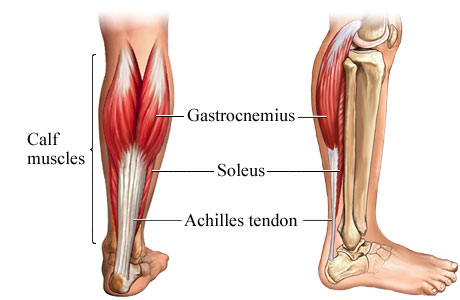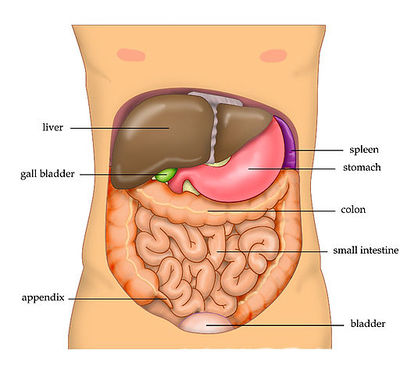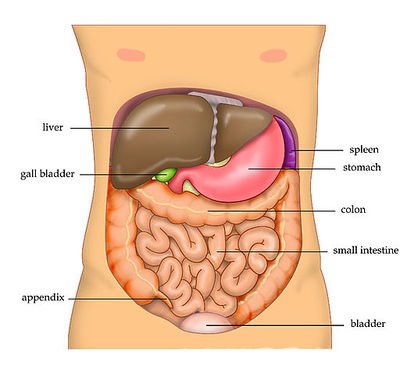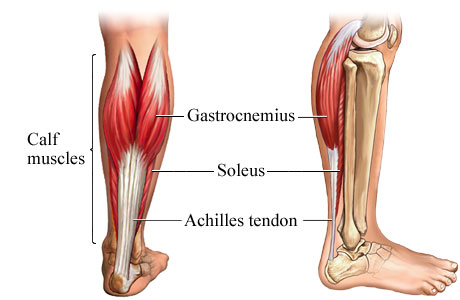


The Modern Disease Stems from the Digestive Juices Deficiency
Foreword
The gut is the first point of treatment... –Dr. Andrew Wakefield (Director of film VaXXed)
Health issues of twenty-seven years forced me to deal with them, and my independent search for their root cause has shown that Dr. Wakefield's quote, above, is on the point.
My research has been extensive and into the unknown. Among other things, and with the initial help of Ms. M. Čeplak, my research has shed light on the overlooked gut overgrowth–Candidiasis, Macrobiotic Perspective (2007)–a precursor of insalubrious body acidity and thus many diseases, including "incurable" ones. However, later on, I realized the gut overgrowth is the result of a deeper cause—digestive juices deficiency. The latter is the fatally ignored root cause of gastrointestinal disorders (dyspepsia), which gradually worsen, if not tackled, consequently affecting the whole body.
Based on experience, replacement digestive juices eliminate dyspepsia for good. I dare to claim the same goes for gastrointestinal diseases, including autoimmune and "incurable" ones. Moreover, the therapy boosts the immune system and body healing to the point of rejuvenation.

Human gut: Alimentary canal between the stomach and the anus. (Courtesy: MicrobeWiki - Kenyon College)
The Overlooked Digestive Juice Deficiency
December 2015, a pulsed magnetic resonance analysis revealed my critically low pepsin level. To be sure I decided to have the analysis repeated with another provider. My pepsin deficiency was much like a revelation, i.e. a longstanding explanation to my recurring question with regards to my inability to gain some muscle mass.
However, my Eureka moments multiplied due to my knowledge of Western medicine and ancient Oriental diagnosis (thanks to macrobiotics, i.e. the teachings of Michio Kushi and his contemporaries). Namely, after additional research, I translated the lack of pepsin into a digestive juices deficiency condition, which in turn revealed the overlooked root cause of dyspepsia, and, behold, of non-hereditary modern diseases, too.
In spite the fact that the indigestion is well known to Western Medicine, the root cause of the former has been eluding the science to this time. According to the Encyclopaedia Britannica, e.g., "indigestion/ dyspepsia may be caused by a disease, but it primarily occurs because of stress, improper eating habits, excessive smoking, exorbitant consumption of coffee or alcohol, or hypersensitivity to particular foods. Indigestion can be alleviated by avoiding the foods or drinks that seem to cause it and by not smoking." Also, medical doctors suffering heavily from the dyspepsia consequences themselves are proof to the fact that the medical science is in the dark.
Let me reiterate that gastrointestinal disorders occur primarily due to the lack of digestive juices (!). From the above list of symptoms, only stress comes close to the root cause of dyspepsia, whereas poor dietary habits, tobacco, coffee, and alcohol—listed as causes—only exacerbate the condition with body exhaustion. And food allergies are nothing else but a result of the digestive juices deficiency (hereinafter referred to as DJD).
The impression is that the root cause of dyspepsia—DJD—has been deliberately ignored. The very word dys-pepsia indicates a lack of pepsin. If a weakened stomach lining is the cause of pepsinogen (precursor) deficiency, the same goes for stomach acid (HCl). However, according to Oriental Diagnosis, this may reflect in pancreatic enzyme insufficiency, as well. Experimental short period self-therapy with replacement pancreatic enzymes shall attest/disprove the suspicion.
[In my mid-thirties (1994), I was diagnosed with an acute dysproteinemia, yet its cause wasn't identified. Doctors didn't even consider the possibility of pepsin deficiency.]
It seems medical science is ignorant of DJD and the condition is rarely diagnosed, except in extraordinary cases such as (partial) stomach or pancreas removal. Instead, replacement digestive juices therapy should be prescribed for almost every modern disease. Namely, a digestive support consisting of gastric acid, pepsin, and pancreatic enzymes is crucial for good digestion restoration, i.e. dyspepsia discontinuation, and any related disorder. The therapy, in turn, boosts the whole body towards a healthier functioning and deep self-healing. NB: Arguably, healthy dieting is very helpful; however, the digestive support is often a decisive factor.
It's worth mentioning that pancreatic exocrine insufficiency has been researched in depth, whereas the lack of gastric juices, i.e. of the pepsin, in particular, is neglected.
The Digestive Juice Deficiency (DJD) & Etiology of Modern Diseases
If food digestion is poor due to DJD, many nutrients do not enter the blood and therefore the body cannot use them, although they are desperately needed. If the condition is left unaddressed it is bound to gradually cause various ailments not only in the alimentary canal but throughout the whole body, as undigested food sits in intestines fermenting and decaying. Pathological microorganisms proliferate in the process, including fungi; their metabolites is toxic waste/acid, which automatically enters the blood stream due to blood's opposing alkaline quality (opposites attract). Thus, the acids put a burden on the body's lymph and excretory systems—affecting the body's immune system. And due to nutrients deprivation, the body's regenerative capacity is curbed and diminished and the aging process of the body begins.
The more serious DJD and its duration results in greater indigestion. The poorer food digestion (regardless of the food quality), the more toxic waste enters the blood, and the more ravages of aging. Excessive acids produce inflammatory disorders in the gastrointestinal tract and/or elsewhere in one's body. Sooner or later, specific organs and/or the mind fall ill as a result; toxic build-up also creates illnesses in nervous, cardiovascular, lymph, and excretory systems; the excess acid depletes the body's mineral deposits and creates various skin, bones, joints, connective and muscle tissue conditions.
All of this is due to a domino effect of DJD, which gets people trapped in a vicious cycle of suffering and an ailment that drains their life force slowly but surely. In the long run, aside from ailments and disease, DJD also brings about fatigue and frailty...till the bitter end (death).
Nevertheless, DJD can begin at a young age, therefore youngsters may fall ill with "incurable" diseases due to the chain reaction of DJD.
Symptoms of the Digestive Juices Deficiency
Before listing most obvious symptoms, let me emphasize that the congenital (non)robustness of the stomach and pancreas is reflected in the individual's calf muscles—their Latin name gastrocnemius or double-head stomach muscle (see drawing)—is self-explanatory. The stronger the calf muscles, the hardier the constitution of the corresponding organs. NB: Individual Nine Ki Nature is a big factor, too.


The more pronounced the calf muscles already in adolescence, the better the youngsters' digestion and the more proportionate their physical development. In young people, this constitutional trait reflects in their higher self-confidence, and inner calm, too.
In contrast, weak calf muscles (see drawing without annotations) are indicative of a predisposition to DJD and dyspepsia at a young age, already.
Other typical symptoms of gastric juices deficiency and pancreatic enzyme insufficiency combined include:
• One or more dyspepsia symptoms (foul breath /halitosis/, abdominal discomfort, belching, flatulence, aversion to eating, nausea, vomiting, diarrhea, constipation, heartburn, gut overgrowth etc.)
• Gastrointestinal issues, especially inflammatory bowel diseases, celiac disease or irritable bowel syndrome
• Abdominal water retention (ascites)
• Inability to gain weight
• White coated tongue (also indicative of gut overgrowth)
• Temporary stomach aches; nausea during car ride on winding roads
• Anemia, occasional nose bleeding and/or stuttering
• Acid accumulation in muscle system; in some people this causes connective tissues pain (fibromyalgia), while in others this phenomenon occurs only after increased physical exertion
• Hypoalbuminemia, hypoproteinemia (dysproteinemia) or muscle depletion (sarcopenia)
• Slow/Poor regeneration after prolonged spiritual or physical strain
• Brittle nails and/or sparse hair; growing gray hair
• Disproportionately thick or swollen upper lip
• Cold sensitivity (intolerance) and/or freezing hands and feet
• Paunch despite healthy lifestyle (regular exercise, healthy nutrition etc.)
• Fat accumulation around the waist and other parts of the body
• Fatty liver (non-alcoholic hepatic steatosis) and/or high cholesterol
• Pus abscess underneath tooth, under the skin next to nail (paronychia); pus forms in throat, sinuses or elsewhere; in women, vaginal pus during menses
• Smelly and/or voluminous stools stool due to indigested food; excess fat in feces (steatorrhea)
• Low energy or chronic fatigue syndrome
• Osteopenia or osteoporosis
• Neurological ailments and disorders
• And others
Obviously, the list is incomplete yet the origin of many modern diseases, including chronic, autoimmune, and "incurable" ones can be traced to the above, and their root cause, or the invisible first domino of respective chain reactions, is DJD.
For clarification of but a few symptoms and DJD connection, see the following.
Sundry Insights on the Digestive Juices Deficiency and…
· …Contention "You are what you eat." Truth of the matter is, this assertion is valid as long as there is digestive juice sufficiency. With DJD food digestion is hampered and tends to worsen, gradually; undigested food sits fermenting and rotting in intestines, thus boosts the proliferation of pathology microorganism and toxic waste/acids, which automatically enter the blood, deplete mineral reserves, and put strain on one's liver and immune system. Hence, with DJD "You are what your body makes of food ingested," and the outcome is doubtful. Gradually, one's food intake becomes more harmful than beneficial.
· …The inflammatory/unexplained gastrointestinal disorders. Stagnant and rotting food in the intestines produces plenty of acid. Since DJD creates acid build-up, clearly, it also causes unexplained disorders and diseases, such as appendicitis, peptic ulcer, colitis, IBS, Crohn's disease, and other.
· …The nervous system. The myelin sheath of nerve cells is partly made up of protein. Since the protein digestion is possible only in the presence of protease enzymes, they are essential for nervous system regeneration, and its healthy function; the same is true for vitamin B12–its metabolism is possible only in the presence of gastric acid. Therefore, DJD is critical in nervous system disorders.
· …The eating disorders. DJD gives an explanation to the phenomenon of overeating (compulsive, binge, gluttony…), fatal anorexia nervosa and food allergies. Taking into account nerve disorders and the DJD connection (see above), it is clear that the administration of replacement digestive juices is the cure of choice. Eating disorders fade out quickly with the therapy. Fast forward, dramatically improved and healthy digestion is all one's body will need to shed any eating disorder and to recover.
· …The protein metabolism in muscle and rheumatic disorders. (1) Proteins metabolize in the presence of protease enzymes only, therefore their lack generates protein deficiency and the process of muscle depletion sets in. Allegedly, this process—sarcopenia—is: (a) a degenerative loss of skeletal muscle mass quality, and strength associated with aging; and (b) a component of the frailty syndrome. Well, these are the consequences and not the root cause. (2) If the body does not get enough energy from foods it will begin to break down other nutrients to get at least some power, including its own protein molecules. Hence, catabolism of muscle fibres generates cold in one's body; if the condition prevails DJD is conducive to rheumatic ailments.
· …Type 2 diabetes. Severe exhaustion of the pancreas results in less insulin formation. Therefore, secondary diabetes mellitus is the result of the DJD, as well.
· …The antibiotics vs. gastric acid. While gastric acid is a disinfectant of food ingested, antibiotics interfere with digestion chemistry and destroy intestinal flora. The lack of HCl-acid results, among others, in poor or no disinfection of food intake, thus resulting in parasitic infestation of gastrointestinal tract.
· …Diseases of old age in youngsters. Due to our modern lifestyle—unhealthy diet, nervous stress, and lack of exercise—incidence of DJD among young people is increasingly common, and so are the diseases characteristic for the elderly.
One in two people will develop cancer at some point in their lives, according to the most accurate forecast to date from Cancer Research UK, and published in the British Journal of Cancer. “Cancer is primarily a disease of old age, with more than 60 percent of all cases diagnosed in people aged over 65. If people live long enough then most will get cancer at some point.” –Professor Peter Sasieni
· …The cancer. Connection is the following: Dyspepsia > Food rotting in intestines > Fungal gut overgrowth > Acid and mucus build-up in the body > (Continuation is well known). And DJD is also explanatory regarding the incidence of cancer in modern society and its predominance in elderly population. Namely, the pathology consequences of DJD worsen with time, i.e.one's growing of age.
· …Painful knees during ascent or descent due to the lubricant insufficiency. Only protease enzymes facilitate lubricant production. Glucosamine is not the main ingredient in medicines for pain treatment of strained joints; instead, it is the protease, and this fact is concealed deliberately. Namely, joint lubricants are composed of proteins.
[My own experience generated an affirmative conclusion, respectively. In 2015, only by enduring sharp knee pains I could descend downhill. With the replacement pepsin and gastric acid therapy the pain disappeared. I wasn't taking any glucosamine whatsoever.]
· …Vitality and the longevity. Replacement digestive juices therapy allows tissue renewal and vitality regeneration, whereas DJD generates physical frailty (infirmity from old age) and acceleration of aging. Arguably, this kind of digestive support also provides for healthy longevity.
Treatment of DJD and Body Regeneration
Avra kedavra. [You create as you speak.] –Aramaic phrase
A strenuous modern lifestyle wears down the nervous system and brings exhaustion to organs that generate calmness and concentration—i.e. stomach, spleen, and pancreas. Due to their constant strain their digestive juice production capacity diminishes with time as explained above.
Addressing the root cause of DJD will restore the healthy function of the solar plexus organs. Remedial action includes the calming down of one's life and/or stress management. As long as patient's body is still in good physical condition a (macrobiotic) dietary regimen and regular physical strain may prove sufficient.
However, DJD is usually addressed after prolonged body exhaustion through malnutrition. This calls for the digestive support—the intake of gastric acid, pepsin, and pancreatic digestive enzymes.
As soon as the rotting of undigested foods ceases, the body is relieved of excess waste (toxin, acid, and pathology microorganism). Then, waste discharge begins, as well as self-healing, and immune system reinforcement.
In replacement digestive juices therapy (RDJT) the following is to be observed:
· Primarily, the therapy is the intake of gastric acid with sufficient pepsin ad-mixed; digestive support in the form of pancreatic enzymes is optional. The latter shall be included in the case of continued unsatisfactory digestion. With life threatening diseases the support enzymes are recommendable.
· The gastric acid & pepsin dosage. It depends on the individual's age and body mass: kids and adolescents 1/2 - 3 capsules/pills, and adults 4+ capsules/pills during meal time. A burning sensation in the oesophagus is indicative of the capsule/pill stuck and dissolving therein. Flush it down with some liquid!
· The pancreatic enzyme overdose causes constipation, thus 1-3 enzyme capsules per meal are advised, initially. The dosage shall increase in the case of continued unsatisfactory digestion.
· People with stomach ulceration should be careful, initially, as to how much supportive gastric acid their stomach can manage safely. However, to establish the right dosage one should be observant of their stools. If the latter is smelly and sticks glue-like to the toilet bowl the stool protein and fat residue is too much, and dosage increase is advised.
Introductory RDJT may boost a strong discharge internally and/or externally. This is merely a reflection of the body's renewed cleansing ability, and the therapy shall be continued until the illness is gone. This is the usual treatment process in the case of serious (non-hereditary) illnesses, including rarely curable and "incurable" ones.
The adoption of a healthier lifestyle is helpful in accelerating illness remission. In the long run, the therapy strengthens vitality, and boosts rejuvenation, too. Yes, RDJT also slows down the aging process.
May everyone understand the crucial importance of the digestive juices for a sound body and spirit in order to regain/retain health,
and have a great life! –Mitja Fajdiga
* * *
Feb 10, 2017